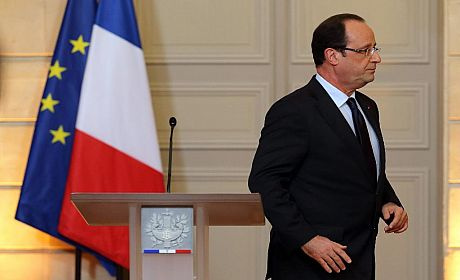Paris and Nostalgia in Damascus

The French President has stated in a press conference that he will do his utmost to refer the Syrian dossier to an international tribune. What are the objectives behind such statements?
From the beginning, France sought regime change in Syria. Even when it was claimed that chemical weapons were used in the clashes in Syria, this country had prepared itself to enter into a military confrontation along with the US. But considering the series of events which took place and also the US’ hesitation about entering into a military confrontation following the Congress’ votes, France voiced its criticism with regard to a non-attack against Syria. Later, Mr. Hollande stated that if an attack had been launched against Syria when the situation there had crossed the red line set by the US, Russia could not annex Crimea to its territories today. This issue shows France’s radical policies with regard to Syria. The roots of this policy are the conflict of interests of the government of France and Syria in the Middle East region and the Levant.
France’s criticism with regard to the US’ approach in Syria indicates that this country has differences of opinion with the US on certain policies. Why does France have a critical view of the US’ policies in Syria?
France pursues its own objectives in the region. France is a country which is not considered as a big power, but rather it as a medium power; but it intends to define itself as a big power by following special foreign policies. Therefore, it seeks to, at least, be able to maintain the area of its influence in the regions which it has traditionally been influential in. These regions include North Africa, West Africa and the Levant in the Middle East. Thus, France provides its objectives through these policies which may sometimes be contradictory to those of the US.
Is it possible for France to still pursue the revival of its era of power in the international scene with General de Gaulle?
In any case, this heritage has still remained. But considering the limited possibilities of France and its economy, this issue is faced with numerous problems. France attempts to use soft power to pursue its policies along with its allies.
What impacts would France’s measure to refer the Syrian dossier to an international tribunal have on the issues in Syria? This is while the US has changed its policies in Syria and the representatives of the UN and the Arab League have resigned.
The realities in the Syrian scene show that this balance has somewhat been broken. Right now, the Assad government has the upper hand; that is why it seems impossible that the measures taken by France will be implementable in this regard.
It has been said that France is not interested in witnessing the empowerment of the forces supporting Assad, particularly Hezbollah. France intends to maintain its influence in Syria in order to cut off the relations between Iran and Hezbollah and, thus remove Israel’s concerns. Could this issue be the insistence of France on regime change in Syria?
This issue is acceptable to a great extent. France seeks to provide its own interests. Meanwhile Israel could impact France’s policies through its lobbies in this country. Nonetheless, France firstly attempts to safeguard its own economic interests in the region and would fight against anything that would contradict these interests.
What will the domestic consequences of this matter be for France, particularly for Mr. Hollande’s party?
In the previous administration, similar policies were pursued. But since the government of France has not, hitherto, been successful in its internal policies, it is now emphasizing more on its foreign policy. If the present government fails in these policies, the chances of the socialists in the future elections will certainly be reduced.

